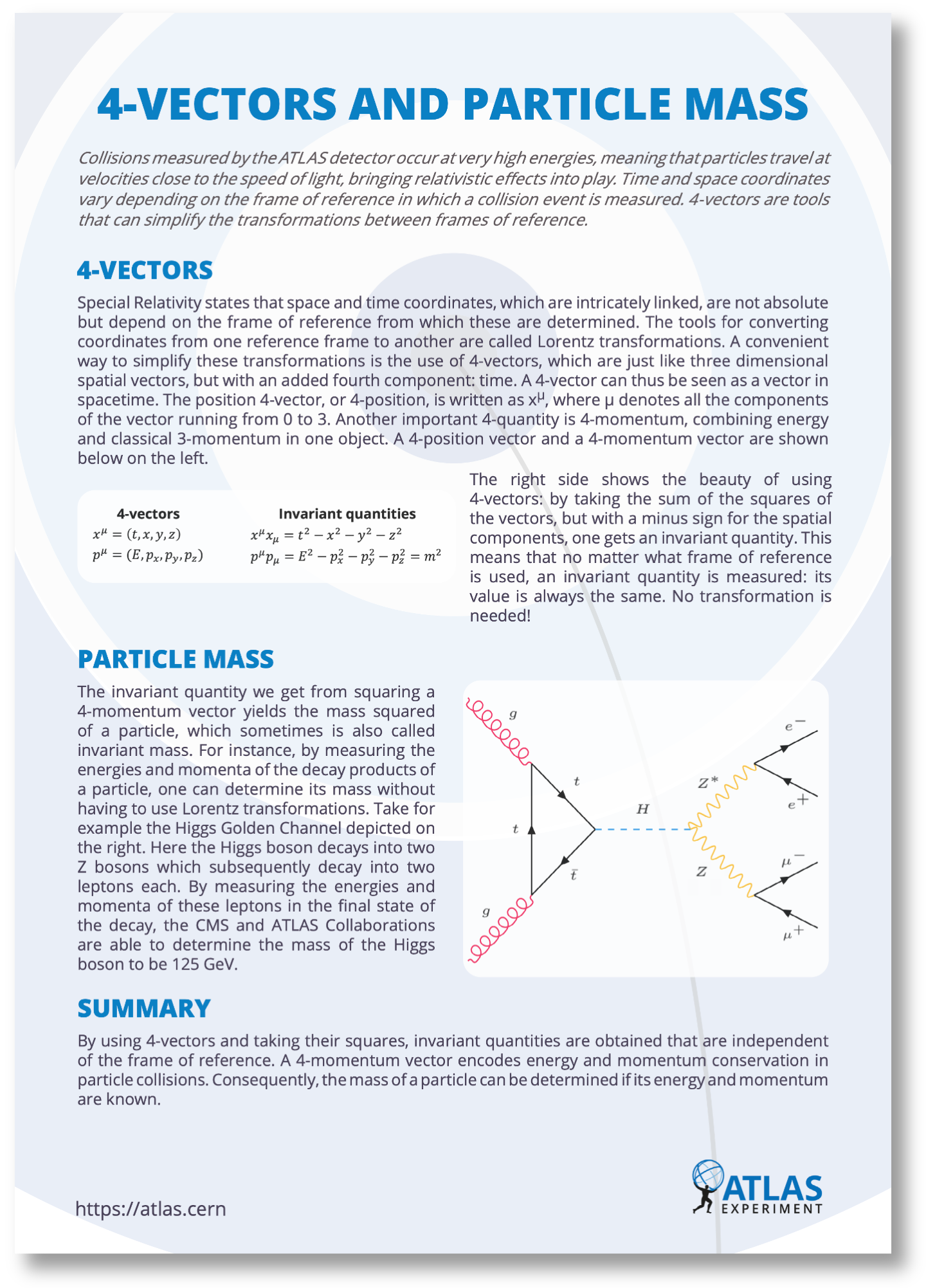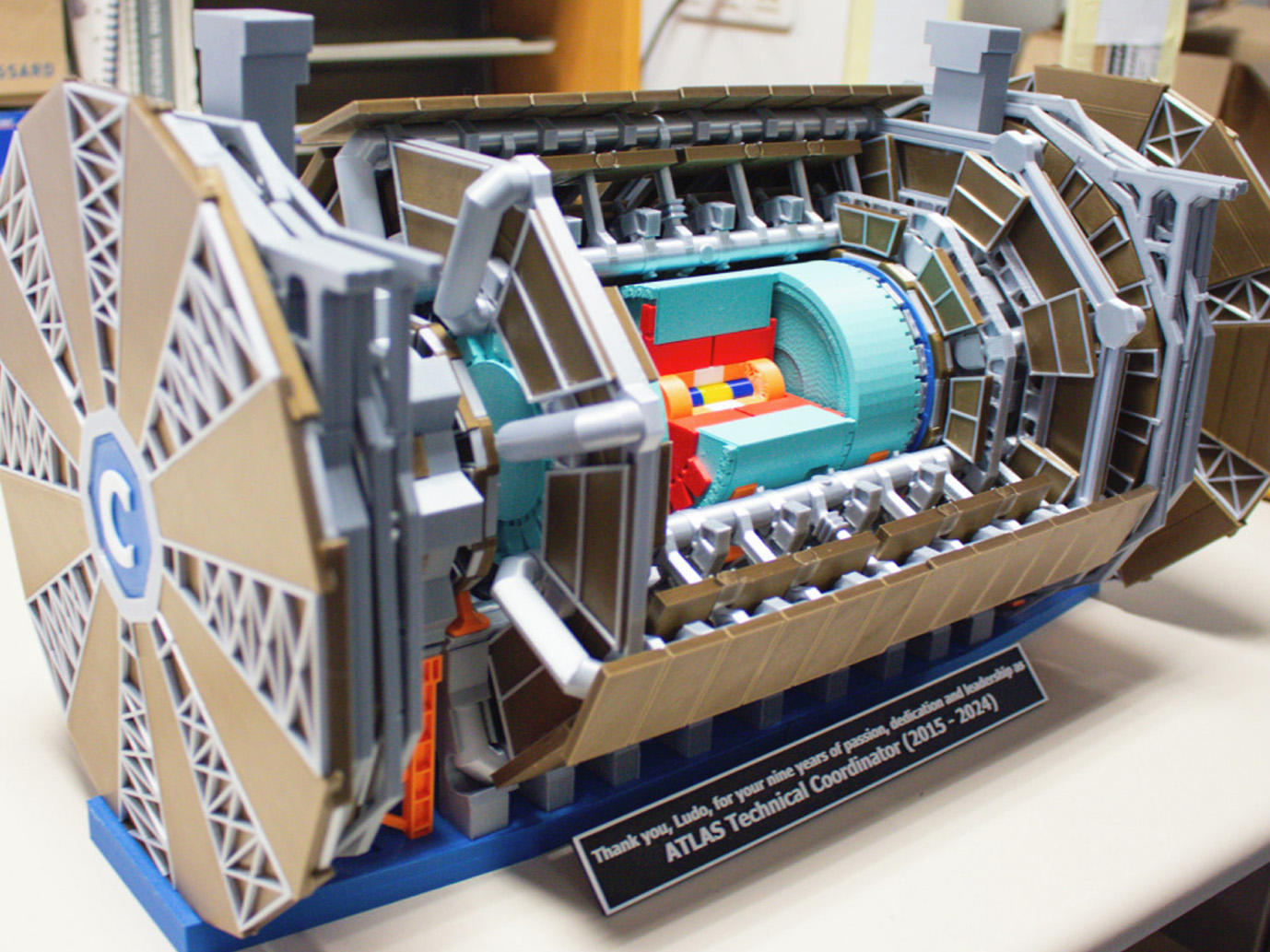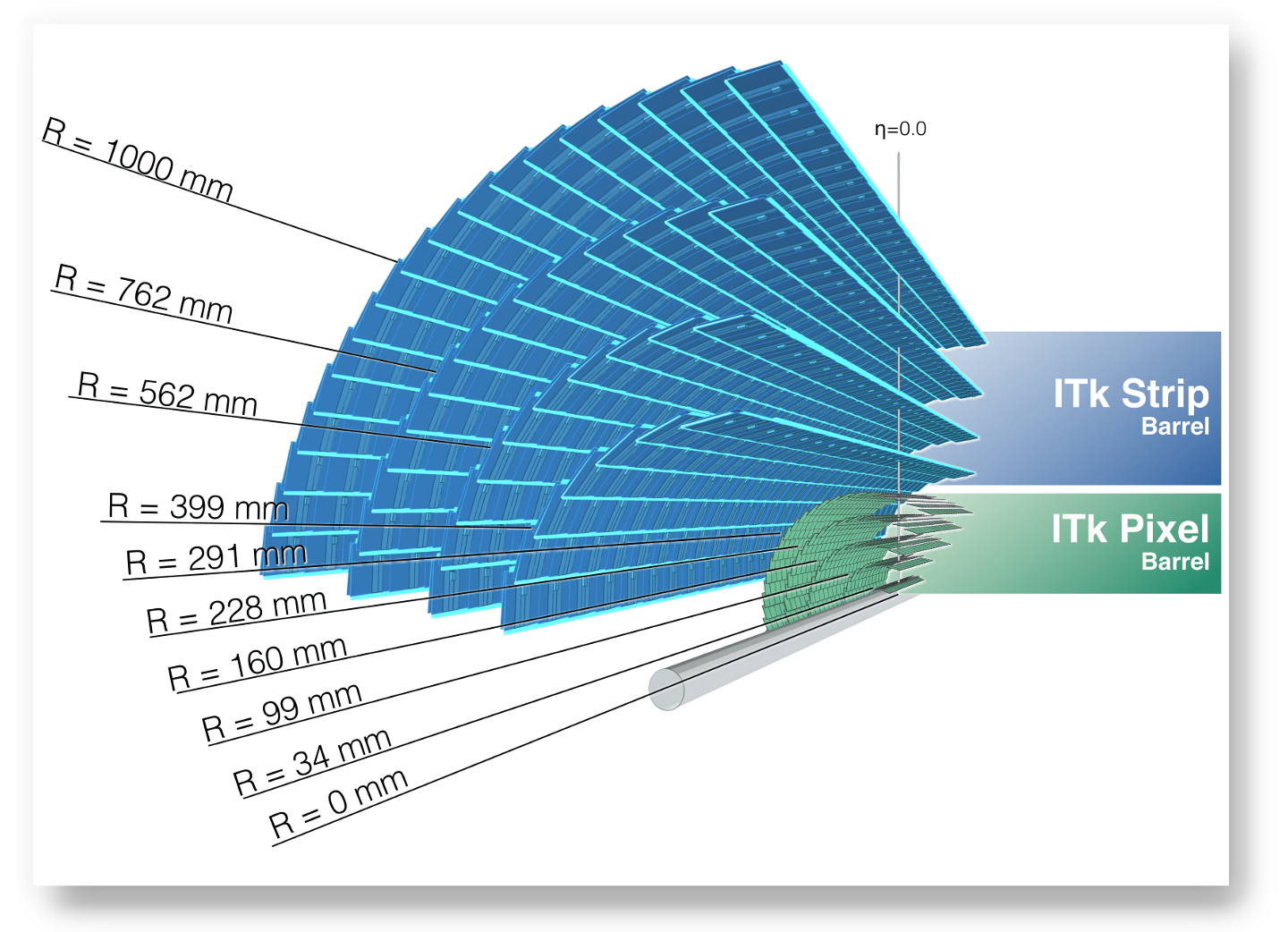This Virtual Visit will be streamed live on YouTube and conducted in Greek.
Family Name
Unal
Given Name
Guillaume
Family Name
Unal
Given Name
Guillaume
Photo
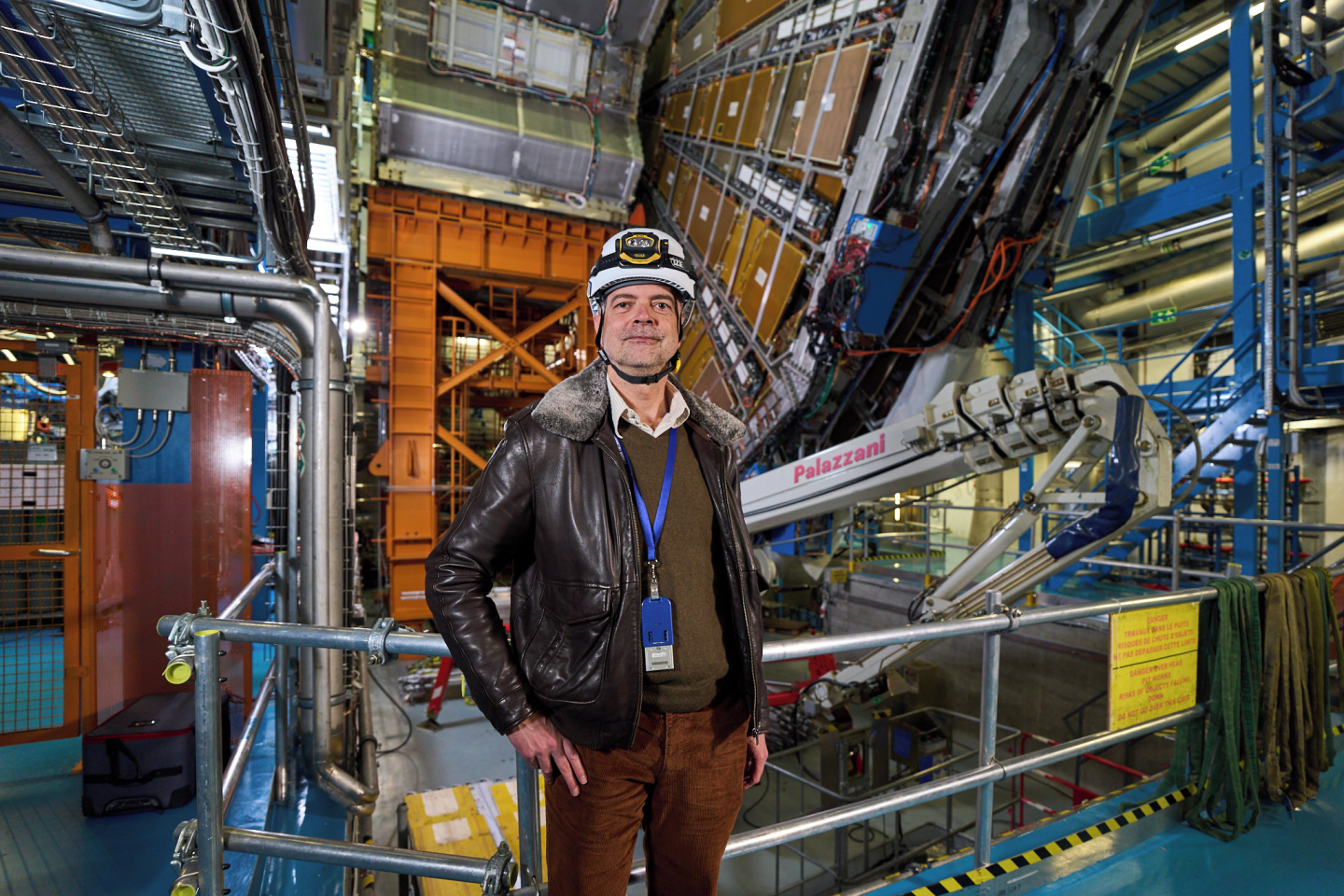
Family Name
Sfyrla
Given Name
Anna
Family Name
Sfyrla
Given Name
Anna
Photo
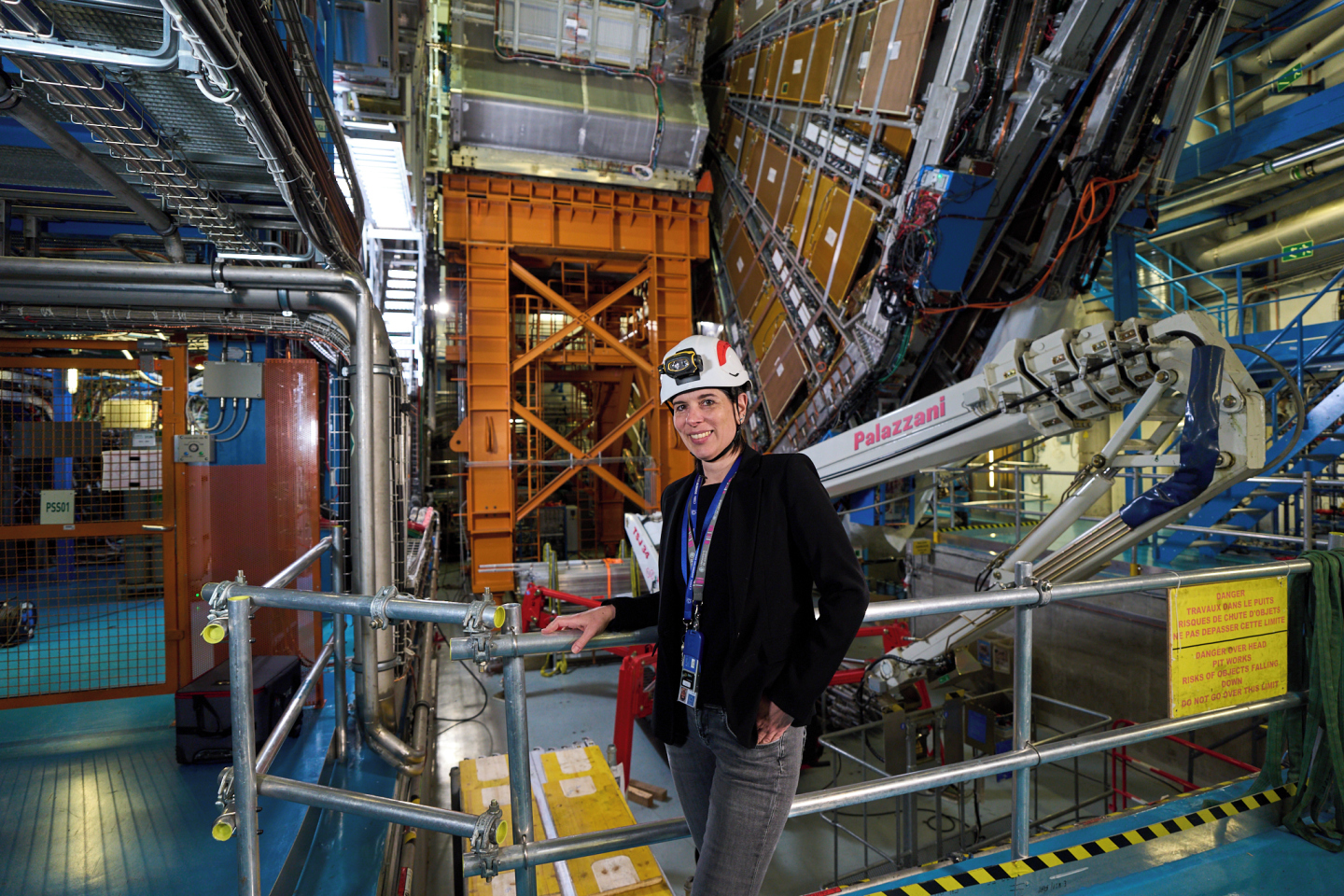
2024 Thesis Award Winners
ATLAS Year
ATLAS Award
The ATLAS Thesis Award winners for 2024 are:
- Christian Appelt (Humboldt University, Germany): Extending the limits in the hunt for long-lived heavy neutral leptons with the ATLAS experiment at the Large Hadron Collider at CERN
- Ana Luisa Carvalho (Universidade de Lisboa, Instituto Superior Técnico and Laboratório de Instrumentação e Física Experimental de Partículas, Portugal): Measurements of Higgs boson properties in associated production with top quarks with the ATLAS detector
- Shalini Epari (Universitat Autònoma de Barcelona, Spain): What to expect when you are expecting new physics: searches for new phenomena in multilepton final states with the ATLAS detector
- Emily Ann Smith (University of Chicago, USA): A Global View of Jets With the ATLAS Detector: From Hardware Triggers to Precision Measurements and Beyond
- Kaito Sugizaki (University of Tokyo, Japan): Search for higgsinos with compressed mass spectra in final states with low-momentum leptons using 140 fb-1 of proton-proton collisions at 13 TeV
- Martino Tanasini (Università di Genova, Italy): The Higgs, the Beauty and the Charm: Improving Jet Flavour-Tagging and Higgs Boson Measurements with Graph Neural Networks in the ATLAS Experiment at the LHC
- Aric Tate (University of Illinois at Urbana-Champaign, USA): Investigations of Initial State Effects in p+Pb Collisions via Dijet Measurement with the ATLAS Detector
- Makayla Vessella (University of Massachusetts, Amherst, USA): Do Dibosons Dream of Semileptonic Sheep? Searching for heavy Wh resonances and optimizing track reconstruction with the ATLAS detector
See the News Article on the 2024 Awards.
Monte Carlo Simulation
Sheet Type
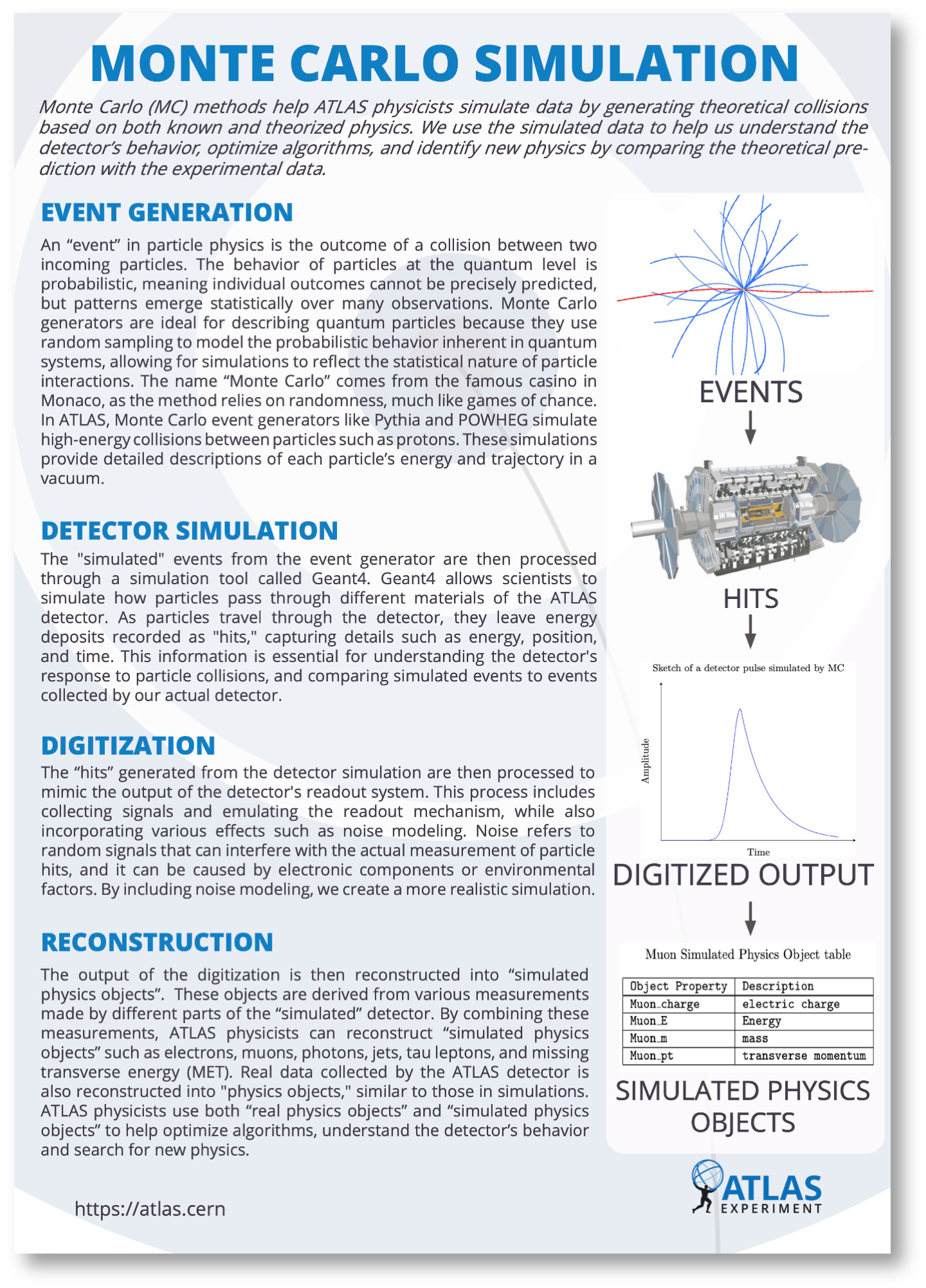
Monte Carlo Simulation
Monte Carlo (MC) methods help ATLAS physicists simulate data by generating theoretical collisions based on both known and theorised physics. We use the simulated data to help us understand the detector’s behaviour, optimise algorithms, and identify new physics.
Keyword
ATLAS 3D Printed Model
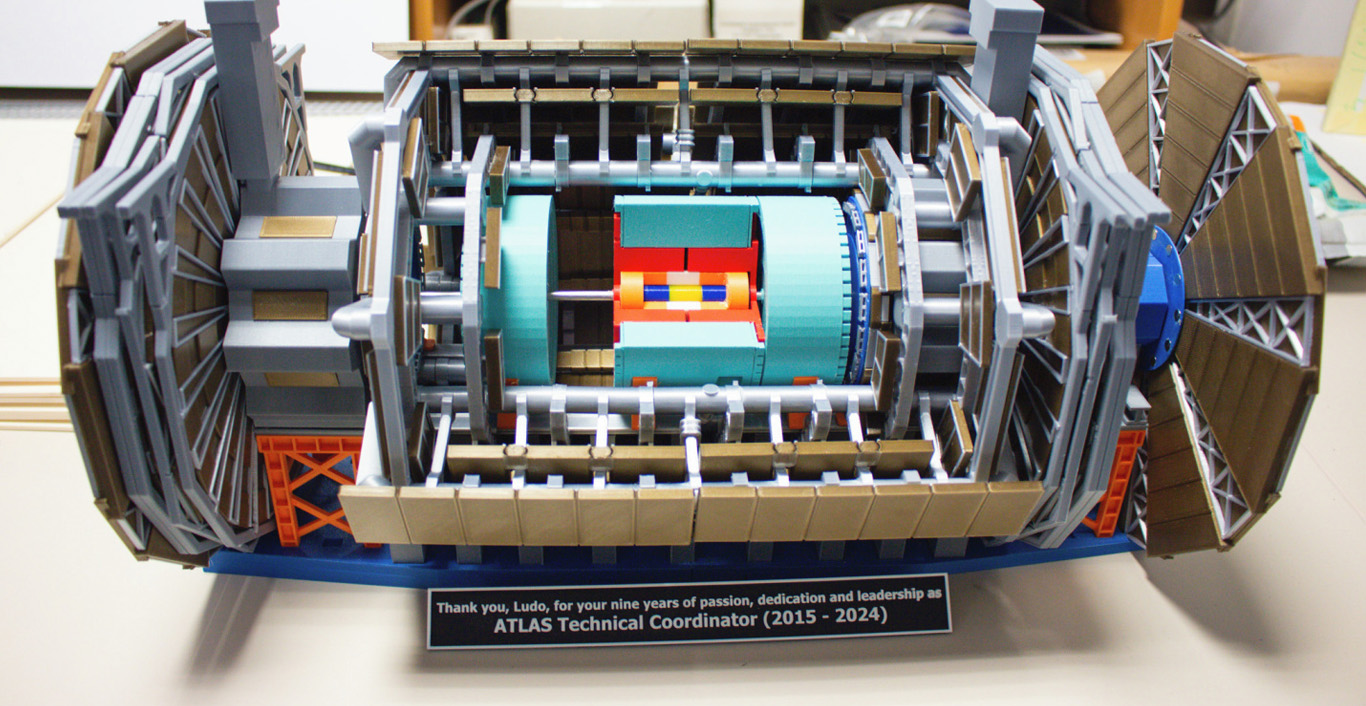
Recreate the iconic ATLAS experiment using 3D printing! This 1:100 scale, highly detailed model was designed by physicist Jan Brajer to capture the complexity and beauty of the experiment. Designed for easy printing, with the detector divided into smaller parts each representing individual detector systems.
Resource Category
2 - Education
Resource Format
Activity
Audience Type
Primary Students
Secondary Students
University Students
Anyone
More info
Priority
2 - high

